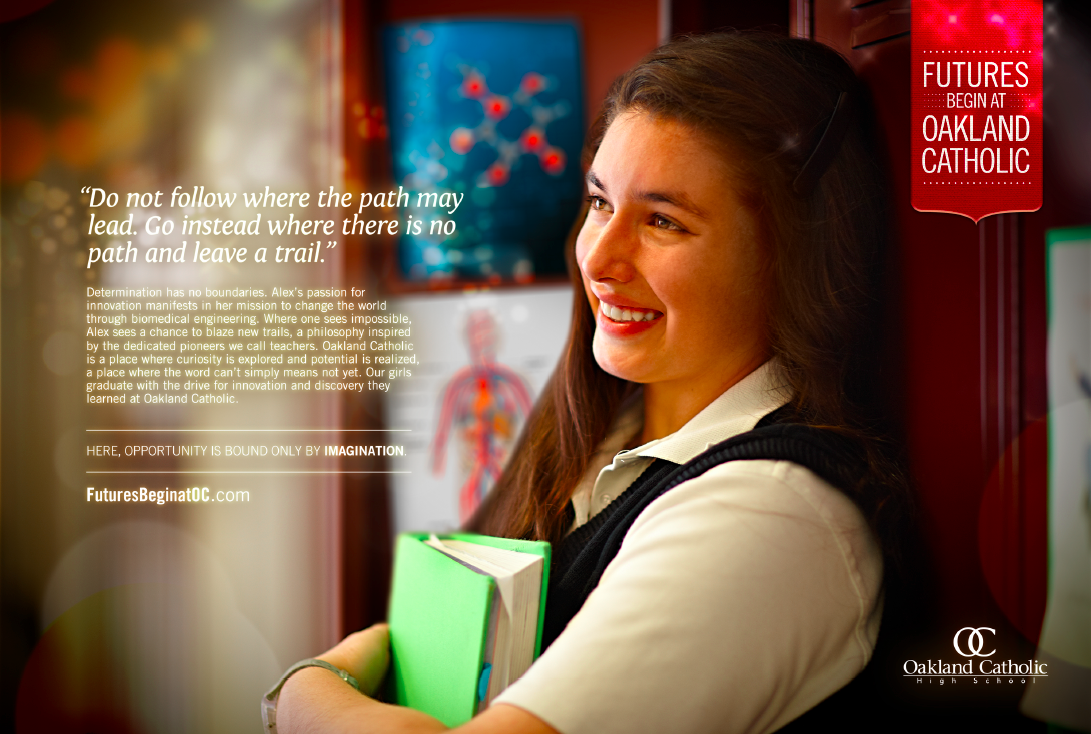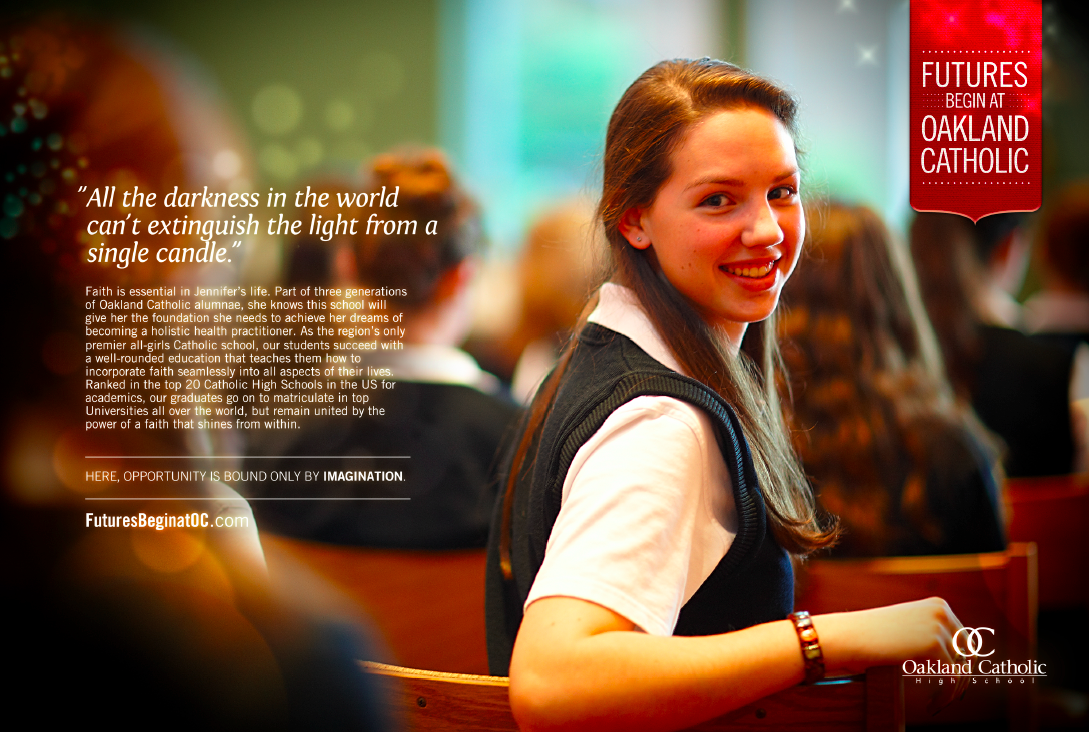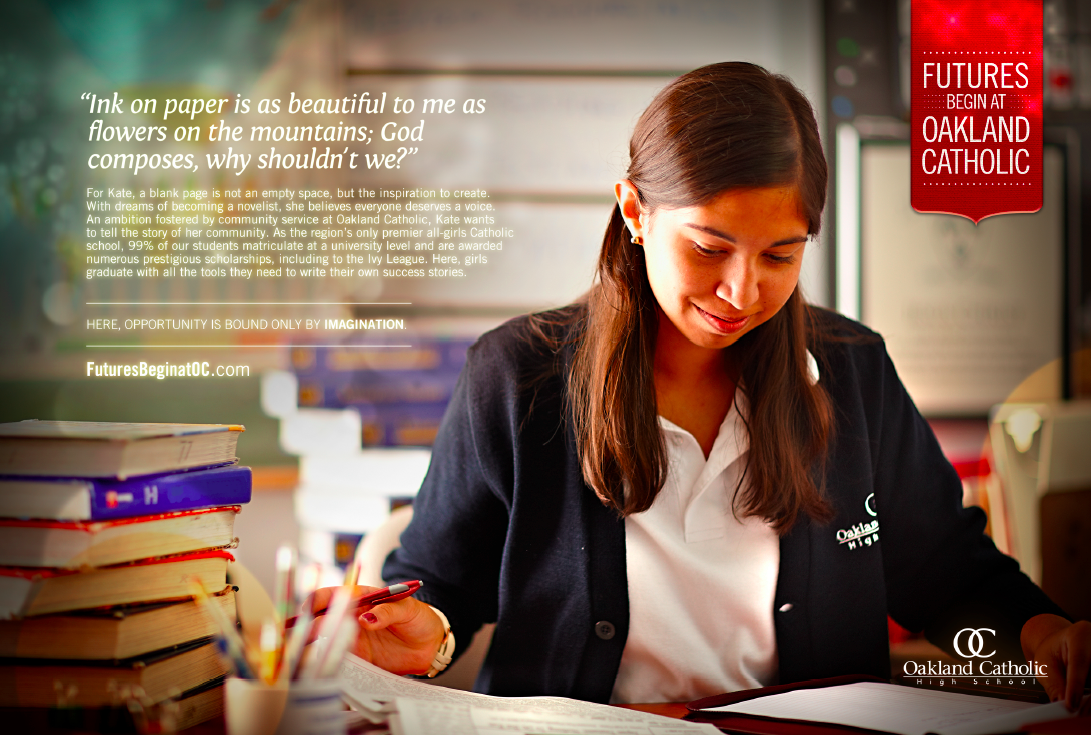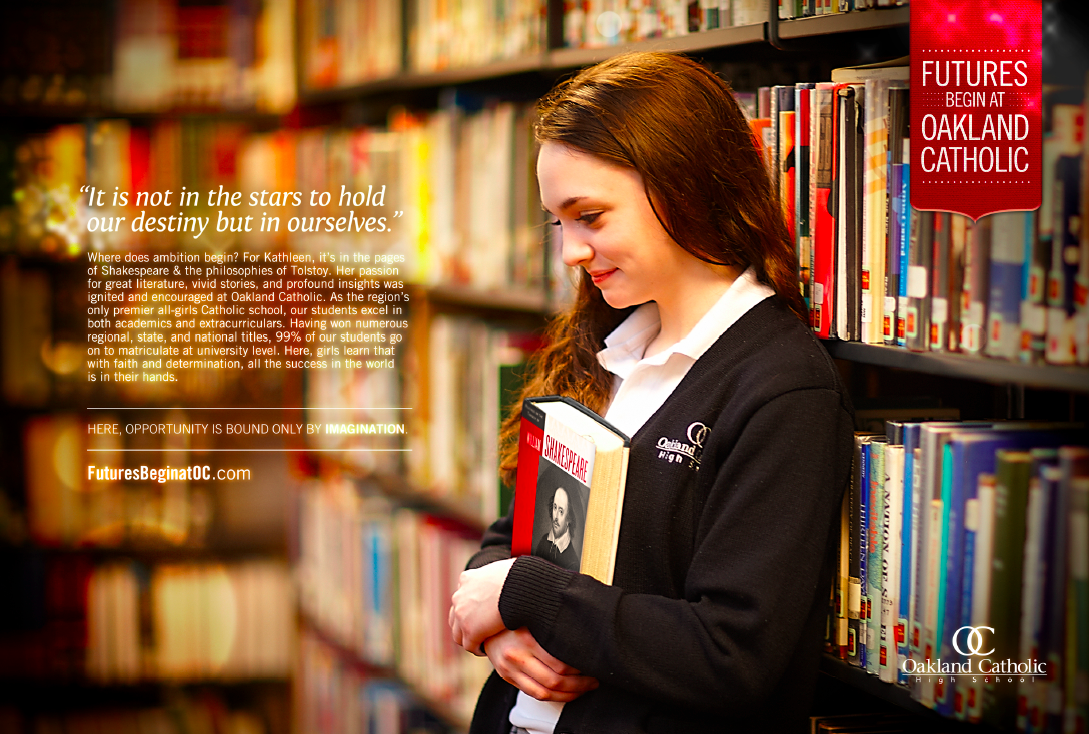Name: Marisa Bunney
Age: 24
College & Majors/Minors: B.A. in English with a minor in Religious Studies from Youngstown State University
Current Location: Miami, FL
Current Form of Employment: Immersive Journalist/Social Media Specialist
Where do you work and what is your current position?
Example of Marisa Bunney's work.
I work for Ronin Advertising Group in Miami. My official title is Immersive Journalist, but as is the norm in advertising, I wear many hats. Realistically, I’m a Copywriter, Journalist, Event Planner, Account Manager, Brand Manager, and Creative Director. I manage a team of writers, produce content calendars, work with designers, create content strategies, manage social media accounts, plan events for luxury residents in Boston and San Francisco, and manage production of creative and collateral material. I also write everything from event invitations and digital e-blasts to ads, social media posts and lifestyle news and blog articles.
I’ve done freelance work as well, writing websites, serving as a script consultant, and creating social media strategies for clients such as IBM’s #mysocialcommerce crowdsourced campaign.
Example of Marisa Bunney's work.
Tell us about how you found your first job, and how you found your current job (if different).
I actually started with Ronin five years ago as an intern, was promoted to a paid internship and was ultimately offered a full-time position. The interview for the position wasn’t quite as rigorous since I already had a relationship with my boss. But, I still had to sell myself. The position was different than what I’d previously done as an intern and required a fresh set of skills. In addition to copywriting, I had to be able to write SEO-friendly content and journalistic articles. I also had to be able to communicate with the client and manage expectations with a certain level of confidence and professionalism. Luckily, I was able to fulfill and exceed the demands. I’m a people person at heart and I was able to show my boss that I could handle client contact and project management and that snowballed into the position I have now.
What was another writing-related job that was important in your career?
My freelance work. I’m a hungry writer and I learn quickly. Having the ability to cross multiple industries taught me to look at every project with an open mind. Script writing, for example, is totally different from copywriting, but it helped me learn the art of storytelling; and in advertising, that’s what we do, we tell stories. My personal interests and activities helped me as well. You may not think those countless hours of Facebooking are productive, but in this industry, having a voice online will get you far. The rise of social media and online marketing are forcing us to communicate in new ways and being able to master that kind of short-form writing is an incredible asset.
What did you do in college to prepare for your post-grad life?
As an English major, I wrote a ton—and I mean a ton—of long-form essays, which essentially gave me the tools to become a great writer. Being the perpetually curious cat that I am, I used my electives and “free time” to expand my skill set. I took poetry, film and screenwriting classes, got into journalism circles, volunteered at the campus Writing Center, edited work for friends, tutored high school students, worked in Summer internships and even wrote a children’s book that was eventually published as part of a recruiting campaign for a daycare.
What is your advice for students and graduates with an English degree?
My biggest turnoff is to hear someone say that English majors have limited possibilities. On the contrary, it actually opens a lot of doors. Not everyone who wants to be in advertising should major in Advertising. One thing my boss—who just happens to be one of the most brilliant people I’ve ever known—always told me that any writer worth their salt has a degree in English. This degree teaches more than grammar basics and sentence structure. It teaches you comprehension and the elements of a great story and how to reach your audience. That knowledge translates into a number of areas: script writing, ad copy, textbook copy, news articles, social media posts, blogs, copyediting, proofreading, even strategy. Always remember this: writers tell stories. And to tell a great story, you have to see it from every angle. That means even if you’re writing technical instructions for assembling an entertainment center, you need to understand who you’re speaking to and what level of knowledge your audience brings to the table, how to create a natural progression or order for what you’re writing. Everything you write will have an arc, a beginning, a middle and an end.
Lastly, possibly the best piece of advice I could give is to build a portfolio. Trust me, employers care more about what you can do for them than your 3.8 GPA. If you don’t have professional work, write your own stuff. Write a spec script, write product ads, start a blog, do whatever you can to have some kind of concrete work to show. That’s what will you get you your dream job.
Connect with Marisa on LinkedIn and follow her on twitter!
Check out more of Marisa's work online here:




















































